"Turning Hard Money into bullet proof money with proprietary contract structures"
The Master strategy for Lenders
The Power of Home Equity Invoice Agreements (HEIAs) for Lenders
Home Equity Invoice Agreements (HEIAs) are revolutionizing real estate lending by allowing lenders to directly invest in hard costs (materials and labor) rather than speculative property or quality values. This innovative financing model ensures higher security, direct asset-backed investments, and a scalable opportunity to fund more properties than ever before with deed and mechanical lien protection.
CLICK BELOW TO WATCH FIRST!
30 Day No-Questions Money Back Guarantee
endless construction need liquid capital and lenders now have a safe, secured, and wealthy way to fund real estate equity in the SIMPLEST way; through the construction of it
Why HEIAs Are the Future of Secured Real Estate Lending

🔹More Control– Invest in the real value creation process rather than fluctuating property prices with extra middlemen.
🔹Higher Security– A proprietary performance backed Deed, ensuring your investment is legally protected with double protection of mechanic liens regardless of deed position.
🔹More Deals, Less Risk– Fund multiple projects securely at once instead of locking capital into one high-risk property with less structure protection.
🔹Fast Liquidity– Get repaid faster than traditional real estate investments through higher structure and work quality, allowing for higher reinvestment cycles.
🔹Guaranteed ROI Potential– Partner with
contractors and homeowners who have a direct incentive to complete projects on time and at the highest value for everyone to share equitably.
INTRODUCING:
Home Equity Invoice Agreement Liaison License
Change the Game for Lenders
HERE’S HOW IT WORKS
Invest in Tangible Hard Costs
Traditional real estate lending relies on speculative values, exposing capital to market swings. HEIAs secure your investment with direct material and value accountability. protecting your downside while still tying you to the upside of market appreciation.
Secure Investments with Proprietary Deed
Unlike risky loans, HEIAs are secured by recorded equity on the deed. giving you priority repayment and an extra layer of security with direct material lien capabilities over deed positions in certain states
Unlock More Lending Opportunities
Traditional real estate requires large capital per deal. HEIAs let you scale by funding specific improvements across multiple properties, not full purchases with additional risks.
Take control of your real estate investments with a smarter, safer, and more scalable strategy. Become an HEIA Liaison today and start investing in secured, debt-free, equity-based real estate deals!
30 Day No-Questions Money Back Guarantee
Unlock the $36 Trillion Home Equity Market
The Future of Real Estate Financing
Before / Old Way
Speculative Value: Abstract market purchase values and costs that are subject to change
Relying on borrower: Relying on borrower credit and payments history for returns
limited to large, slow moving deals: Large purchase prices of property with slow moving acquisition processes
Market Fluctuations: Secured with borrower potential for default
Consistent management: Requires Mortgage payments, meaning borrower default can stall returns
After / New Way
Tangible hard costs: Real materials and labour that increases the homes actual value
backed by deed of trust: Dependant on property hard costs and its connected properties full value
fund multiple properties with the same amount: Invest in improvements rather then full purchases to speed up transactions
secured by added value: Secured by property's real improvements
Funds directly to contractor: Funds go directly to contractor with no management
30 Day No-Questions Money Back Guarantee
🔥 Exclusive 50% Discount for Licensed Loan Officers 🔥
Your Loan Officer License Just Became a Key to Unprecedented Wealth
—But Only for a Limited Time!
If you are a licensed Loan Officer, you’re already a trusted expert in your field. Now, WealthTradie invites you to elevate your career with the HEIA Liaison License, exclusively available at 50% off for a limited time.
This is your opportunity to:
✅Earn 100% revenue share by helping homeowners and contractors leverage Home Equity Invoice Agreements (HEIAs).
✅ Offer innovative equity-based financing solutions that deepen trust with buyers and sellers.
✅ Stand out in your market as a Loan Broker who provides next-level services.
Why is this offer exclusive?
We want to empower licensed Loan Officers like YOU to lead the charge in transforming the equity industry.
Introducing:
HEIA Master Liaison License
The #1 Scaling Method for Lenders
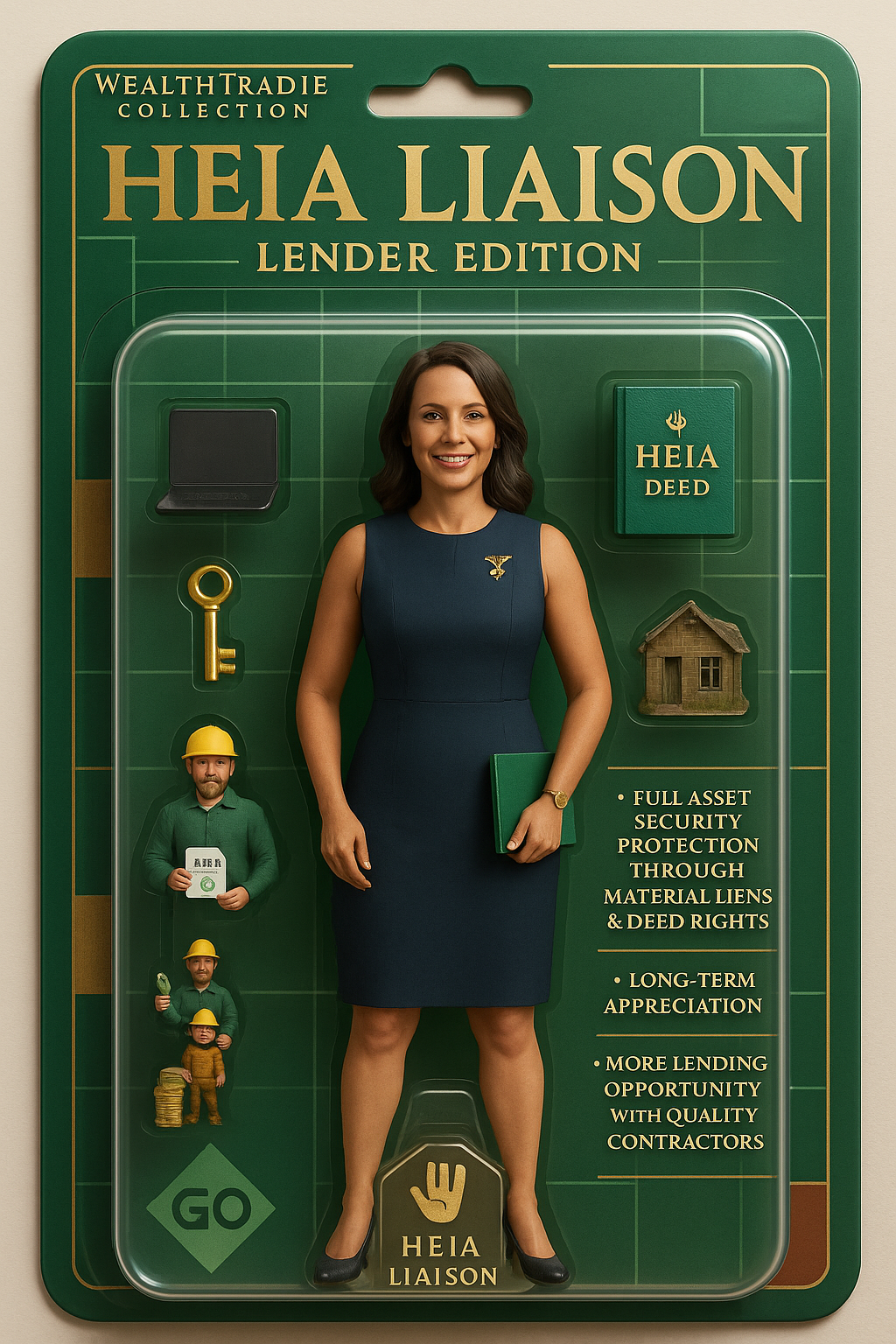
Here's Everything you get:
Step-by-Step Training Value: $5,611
A structured video series that walks you through each phase, ensuring you have everything you need to achieve using HEIA efficiently.
Personalized Implementation Plan Value: $250
A customized roadmap tailored to your specific goals, ensuring you take the right steps toward success with your real estate strategies.
Exclusive Q&A Sessions Value: $recurring
Get direct access to WealthTradie experts for ongoing support and clarity, helping you overcome challenges quickly.
Lifetime Wealth Multiplier Calculator Value: $270
Receive all future updates to the program, ensuring you stay ahead with the latest tools.
Done-for-You Contracts Value: $3,714
Save time and effort with ready-to-use documents that are designed for immediate implementation.
Normally: $an entire college degree
Today: A fraction of the costs
30 Day No-Questions Money Back Guarantee

PLUS, YOU ALSO GET
Amazing Bonuses When You Join Today
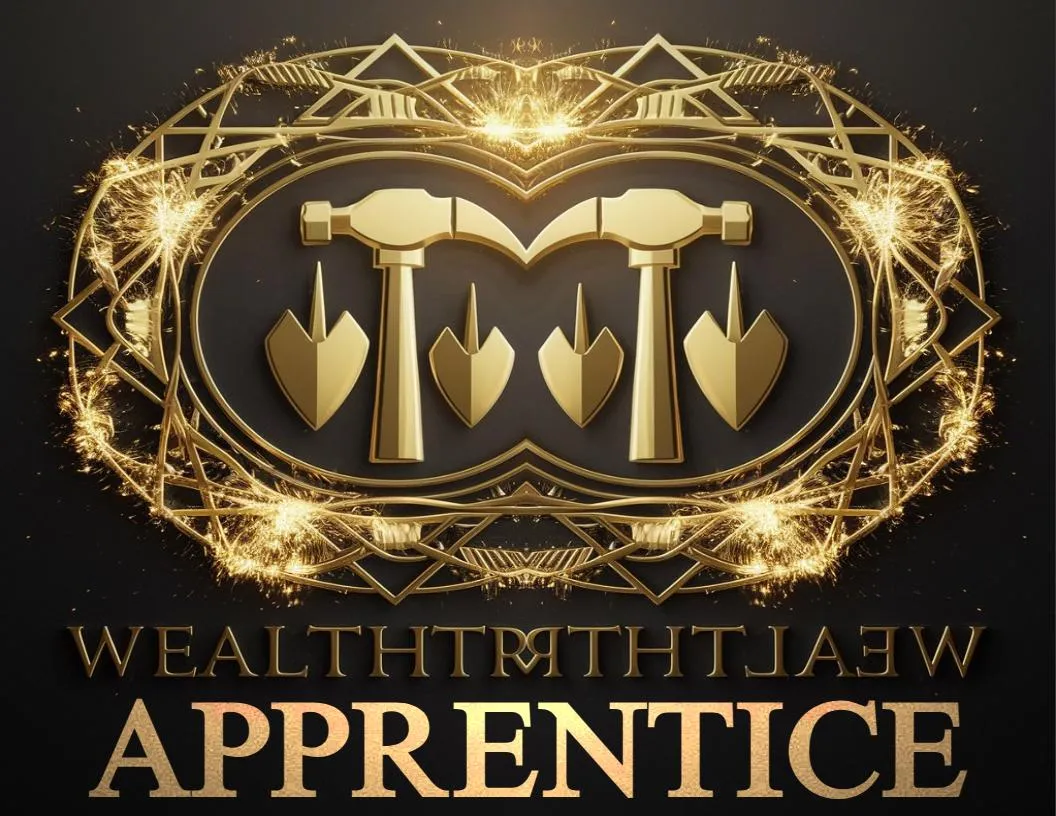
Bonus 1: WealthTradie Apprenticeship
Your All-in-One Toolbox for Scaling Success
The WealthTradie Apprentice Membership provides access to premium tools like equity exchange calculators, client generation resources, and advanced deal structuring contracts. Additionally, gain access to an exclusive support network of real estate professionals to help you troubleshoot and optimize your strategies.

Bonus 2: Pro Membership
Master the Art of Real Estate Success
The WealthTradie Pro Membership gives you step-by-step training to implement HEIA in your business. Learn how to attract homeowners, negotiate equity-based deals, and create win-win solutions for sellers and contractors alike. From beginner-friendly guidance to advanced deal strategies, this program equips you with everything you need to grow your business confidently.

Bonus 3: Full 100% Revenue Share Affiliate Membership
Earn While You Build Your Business
As a 100% revenue share affiliate, you can introduce HEIA and WealthTradie memberships to other real estate professionals while keeping 100% of the referral income. This provides an additional revenue stream that grows alongside your core real estate business.
These bonuses are designed to help you scale faster, work smarter, and earn more. With the WealthTradie Apprenticeship, Pro Membership, and Affiliate Program, you’ll have everything you need to dominate your market.
30 Day No-Questions Money Back Guarantee
Revolutionary
How others are utilizing HEIA

Home Equity Invoice Agreements Transform Foreclosure Investing
Real estate investors face a common challenge when dealing with foreclosure properties: finding the right balance between risk, capital requirements, and profit margins. The traditional approach of purchasing distressed properties outright, renovating, and reselling them comes with significant risks and capital demands. But what if there was a more efficient way to leverage foreclosure opportunities while minimizing risk and maximizing returns?
Enter the Home Equity Invoice Agreement (HEIA), an innovative financing structure developed by WealthTradie that's revolutionizing how investors approach foreclosure properties. This breakthrough solution allows investors to convert a contractor's monetary invoice into an equity percentage of a property, unlocking value without the need for significant capital investment.
Understanding Home Equity Invoice Agreements
At its core, a HEIA converts a contractor's monetary invoice into a property's equivalent equity percentage. This allows all parties to pay for renovations with the after-repair equity value instead of cash. Unlike traditional financing options such as HELOCs or hard money loans, a HEIA functions as a joint venture deed of trust or novation agreement that gives contractors an equity stake in the property rather than just cash payment.
"A HEIA is a joint venture deed of trust or in essence a novation agreement that allows a contractor's cash invoice to be converted to an equity percentage," explains Shane Walsh, founder of WealthTradie. "The traditional route of HELOCs, hard money, or high-taxed cash transactions is avoided, and the savings of 3-30% is now passed on to the homeowner, contractor, or HEIA liaison at their control instead of a third-party bank or lender's control."
This proprietary protected contract and structure is fundamentally changing how renovation costs are handled in real estate transactions, especially for properties in or approaching foreclosure.
Step-by-Step Implementation During Foreclosure Periods
Implementing a HEIA during a foreclosure redemption period follows a specific process:
1. Identify the opportunity: Target properties that are facing foreclosure, in a redemption period, or owned by homeowners needing to downsize but requiring repairs before selling.
2. Connect the parties: A HEIA Liaison (typically a real estate investor, agent, wholesaler, or general contractor) connects the homeowner with a contractor willing to postpone payment until the renovated property sells.
3. Create the estimate: The contractor provides a detailed estimate breaking down hard costs and business costs.
4. Convert to equity percentage: The liaison helps convert these monetary figures into an equivalent equity percentage based on the property's projected after-repair value, using licensed professionals' assessments.
5. Document and record: The HEIA is signed and officially recorded, securing everyone's profits with both deed and material lien security.
6. Complete renovations: The contractor performs the agreed-upon work.
7. Sell the property: The renovated property is sold at full market value before the foreclosure or redemption period expires.
Even if the property completes the foreclosure process, the HEIA's dual protection mechanism ensures that contractors and liaisons recover at minimum the hard costs of the value added to the property when it transfers to a new owner.
The Dual Protection Mechanism
What makes HEIAs particularly powerful is their dual-layer security system that protects all parties' investments without requiring full property ownership. This mechanism consists of two key components:
Deed Position: Recorded Equity Security
HEIA participants record their equity position through a notarized and recorded instrument, such as a Deed of Trust, Performance Deed, or Equity Agreement Lien (depending on the state). This puts the contractor or HEIA Liaison in an official position on title, subordinate only to existing primary liens like mortgages.
In the event of a foreclosure, this recorded position:
• Gives notice to all parties (lenders, buyers, title companies) that an equity claim exists
• Creates a right to be paid out through a reconveyance or lien release process
• Protects the contractor's or liaison's share of post-improvement equity
Material Lien Rights: Value-Backed Legal Leverage
Separate from the deed, the HEIA relies on material invoice documentation that provides:
• A legally enforceable record of labor and materials contributed
• A foundation for a Mechanic's Lien or Materialman's Lien
• An indisputable record that improvements added real, appraised value
This gives HEIA participants another layer of protection: even if the deed position is challenged, the value created through services remains protected by lien law.
The combination of these two security mechanisms allows participants to avoid full property ownership while still securing their portion of created equity, receive payment before homeowner profits (even in a forced sale), and operate within standard property law protections.
Real Numbers: How HEIAs Work in Practice
To understand the financial benefits of HEIAs, consider this practical example:
A property with a full market value of $1,000,000 needs $100,000 in renovations. The homeowner faces foreclosure proceedings on their first mortgage of $500,000 but cannot afford the necessary repairs.
In a traditional scenario, an investor might offer $550,000 cash, giving the homeowner $50,000 while taking on all renovation costs and risks. The investor would likely use hard money or private capital costing 3-10% of the combined purchase and renovation costs ($650,000).
With a HEIA approach:
1. The investor offers cashless renovations without purchasing the property outright
2. The 3-10% that would normally go to capital providers is redirected to the homeowner or contractor
3. The contractor's $100,000 renovation invoice converts to 10% of the property's $1,000,000 after-repair value
4. The agreement is secured by the HEIA, ensuring all parties receive their fair share only after work completion and property sale
This structure provides additional benefits through potential tax savings, as ordinary income tax can become capital gains tax. Most importantly, homeowners typically receive two to three times the amount they would from traditional cash offers, giving them more resources to move into a new property and avoid future foreclosure situations.
Scaling Your Business with HEIAs
For investors, the HEIA model offers significant advantages for scaling operations:
Reduced capital requirements: Capital needs are minimized or eliminated for the hard costs of property improvements. The contractor doing the work determines these costs, creating built-in self accountability for quality and pricing.
Lower risk profile: Investors don't take full ownership of the property, avoiding the risks associated with purchasing capital, mortgages, and property management responsibilities.
Increased deal flow: With reduced capital requirements and responsibilities, investors can take on more projects simultaneously.
Focus on core competencies: This structure allows investors to concentrate on recognizing opportunities and creating value by facilitating relationships between subject matter experts like contractors and appraisers.
By functioning as HEIA Liaisons, investors can leverage their market knowledge and networking abilities without tying up significant capital in each project.
Avoiding Common Pitfalls
While HEIAs offer numerous advantages, there are potential pitfalls to avoid:
Timing miscalculations: The most common mistake is waiting too long to start renovations. Weather delays, material shortages, or unexpected issues can push timelines beyond foreclosure deadlines.
Communication failures: Ensure all parties clearly understand the scope of work, timeline, and projected sale period. Homeowners must have complete information before agreeing to a HEIA over other options.
Legal oversights: Know your state and county laws regarding foreclosures, liens, and deeds to fully understand security measures and risks. Treat all real estate deadlines as worst-case scenarios and develop contingency plans.
Back-up planning: Always have a refinancing option or potential buyer ready to purchase after renovations to prevent foreclosure from finalizing and potentially compromising everyone's interests.
Material Verification and Quality Assurance
A critical aspect of the HEIA process is ensuring that promised value is actually delivered. This happens through a structured verification process:
1. The scope of work precisely outlines the materials, designs, permits, and other costs needed to add value to the property.
2. To "Perfect" the HEIA equity stake, all parties must sign a completion of work document, confirming the work is actually completed. This protects homeowners from paying for unfinished work.
3. Foreclosure clauses in the HEIA protect contractors and liaisons, guaranteeing at minimum the hard costs of work even if the property sells for less than expected.
4. All parties must agree to the licensed real estate agent's competitive market analysis or licensed appraisal value and risk adjustment before work begins.
The HEIA structure naturally attracts higher-quality contractors willing to postpone payment, as they have skin in the game. This self-accountability reduces risk by aligning financial incentives among all parties, even banks and lenders.
Flexible Equity Structures
Unlike standardized financing options, HEIAs offer remarkable flexibility in equity distribution. The equity percentage allocated to contractors and liaisons varies based on multiple factors:
• The property's condition and foreclosure timeline
• Risk levels and market conditions
• Services provided by each party
• Capital contributions (if any)
For example, a higher-risk property with less than six months before foreclosure finalization will typically command a higher equity percentage for contractors and liaisons. A liaison simply connecting parties might receive less than 1% of the equity, while one who provides multiple services could earn 10-20%. In development projects, liaisons might take up to 80% of the equity.
The HEIA provides transparency by clearly documenting how equity is allocated based on actual value contribution, making real estate transactions more equitable for all involved.
Advantages Over Other Creative Financing Methods
When compared to other creative financing approaches like subject-to deals or wraparound mortgages, HEIAs offer distinct advantages for foreclosure properties. While subject-to and wraparound mortgages typically require upfront capital to satisfy impending foreclosure obligations, HEIAs can reduce or eliminate this initial capital requirement.
HEIAs also provide faster value capture than the gradual appreciation homeowners must wait for with subject-to deals. Though not as quick as a cash offer, HEIAs typically generate much higher profits for homeowners, contractors, and investors by reducing costs associated with renovations or repairs, transaction, and capital costs. All work that would eventually need to be done regardless of the financing method.
For homeowners facing foreclosure, the HEIA represents a lifeline that traditional financing cannot match with outdated real estate strategies. Instead of walking away with minimal proceeds from a distressed sale, they can capture a significantly larger portion of their property's true market value without needing to qualify for new financing or trust in conventional novation agreements with less accountable contractor and investors.
By implementing Home Equity Invoice Agreements in foreclosure situations, real estate investors can transform their business model, reduce capital requirements, minimize risk, and create win-win scenarios that benefit all parties involved. This innovative approach not only helps individual transactions succeed but enables investors to scale their operations more effectively than traditional fix-and-flip or distressed property investing models ever could. The right path has always been an equitable one in the game.
Best tools for real estate financing professionals

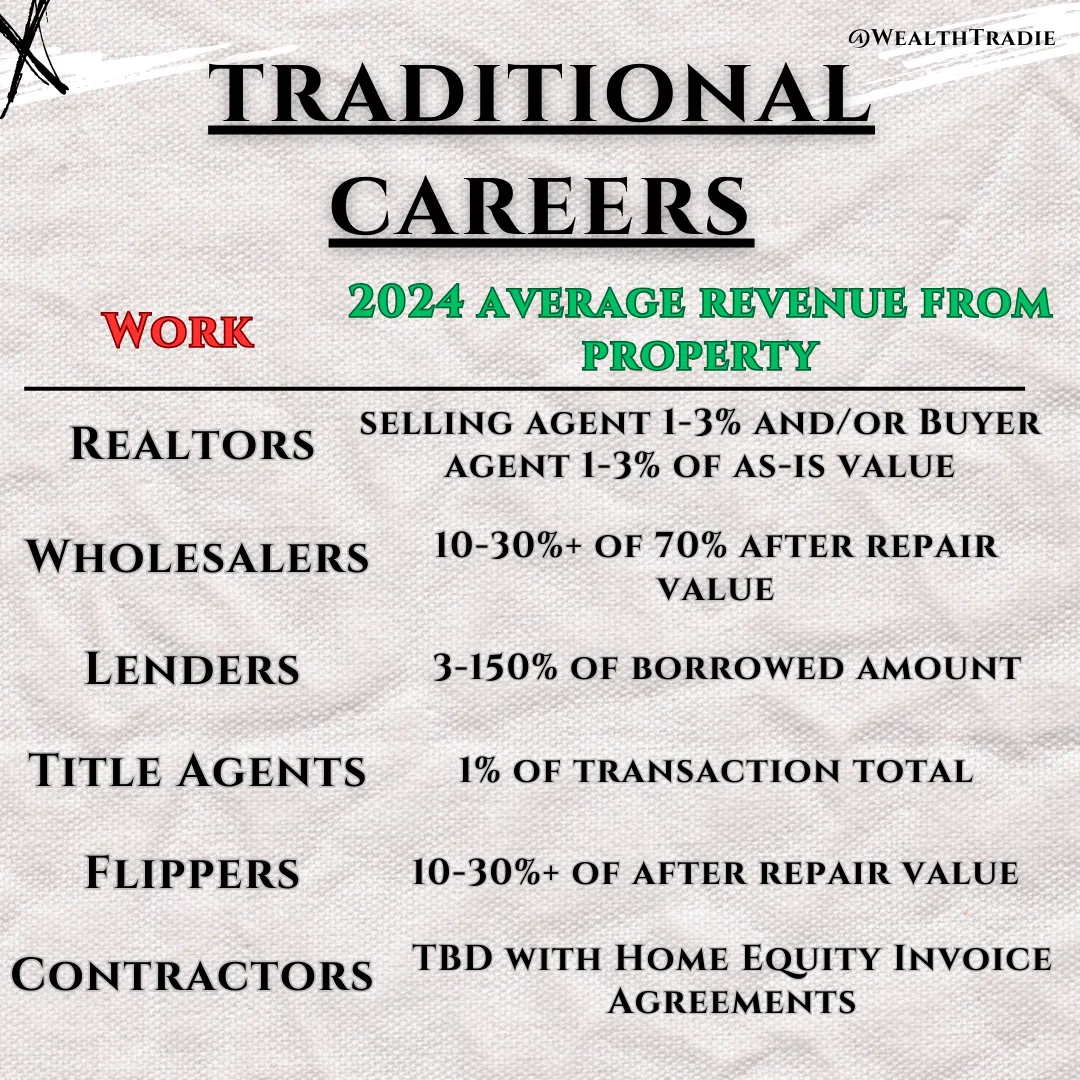
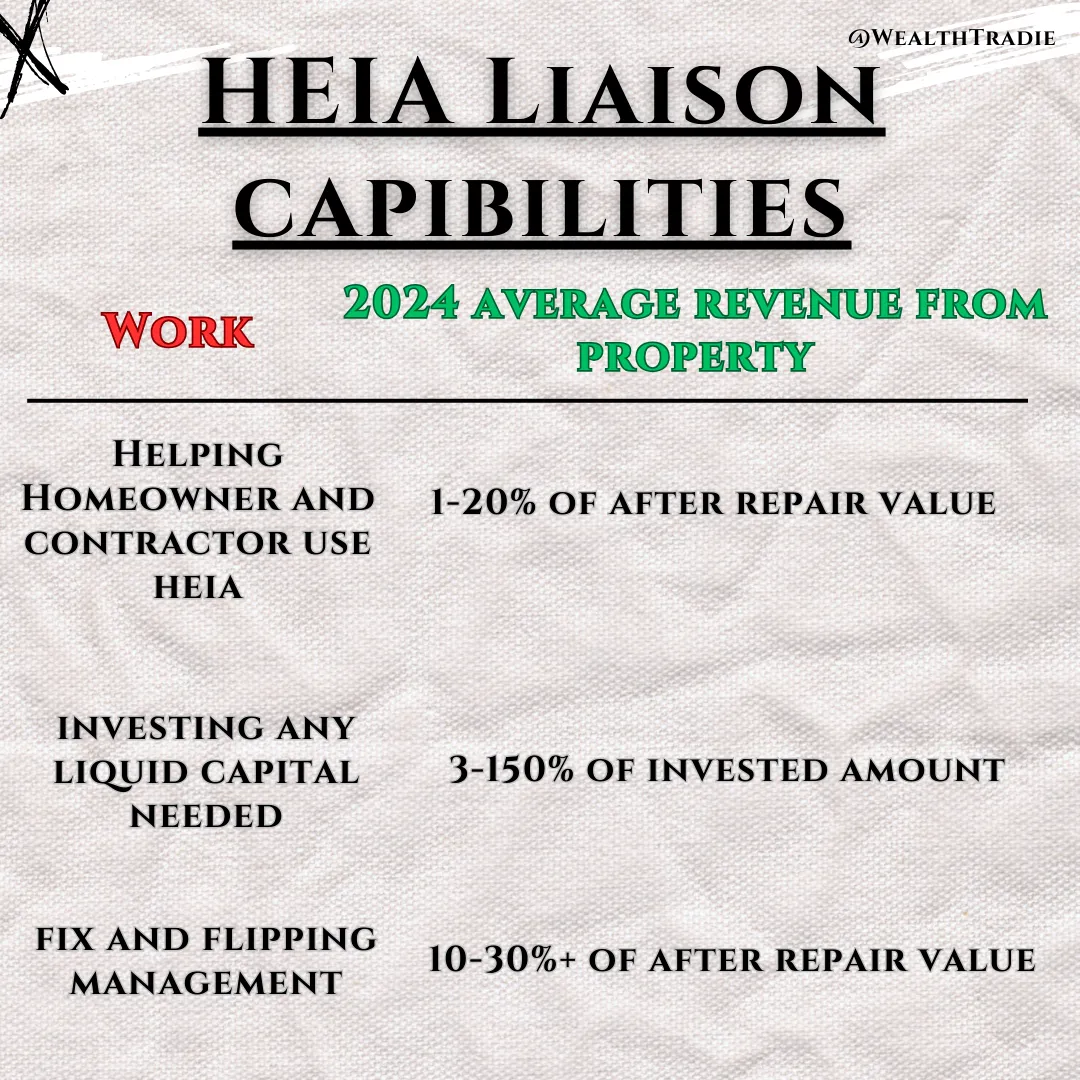


"The Real Game Made Simple"
–A Must-Read
is more than just a book – it’s your guide to unlocking success in the real estate industry. Packed with actionable insights and real-world strategies, it’s designed to help realtors navigate challenges, build wealth, and thrive in a competitive market.
Here’s why top real estate agents are calling it a
game-changer:
✅ Deepen Your Expertise:
Learn how to align with clients' needs, understand market dynamics, and position yourself as the go-to realtor in your area.
✅ Build Wealth Smarter:
Explore innovative equity-based strategies, like HEIAs, to elevate your client relationships and close deals that benefit everyone.
✅ Avoid Common Pitfalls:
Uncover hidden industry challenges and learn how to sidestep them with confidence.
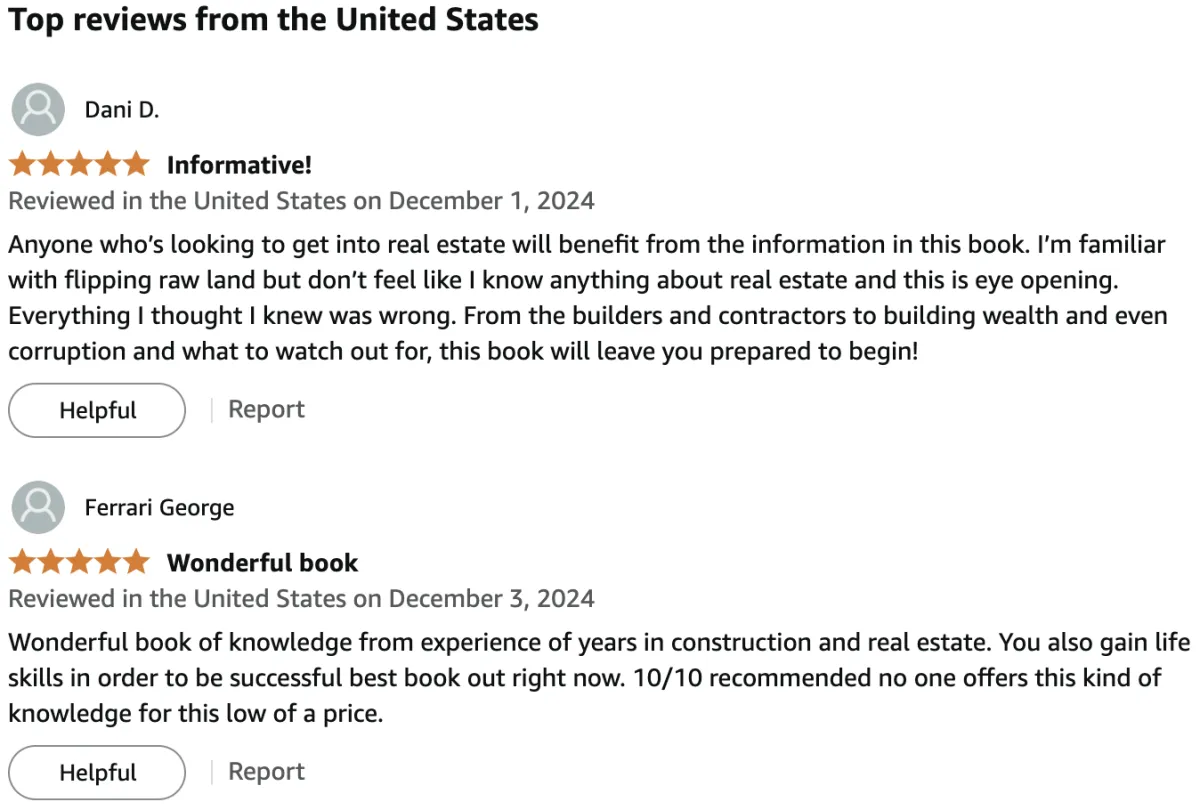
TRY IT OUT RISK FREE
Get a 30 Day No-Questions Money Back Guarantee
That’s how confident we are that you’ll love your experience.

How it works
We’re confident you’ll love your experience, but if for any reason you don’t, you’re covered!
Try us out for 30 days, and if you’re not completely satisfied, simply reach out to us at [email protected], and we’ll refund your full investment—no questions asked. It’s that simple.
We want to ensure that you feel confident in making this decision, knowing you have nothing to lose and everything to gain.
30 Day No-Questions Money Back Guarantee
STILL NOT SURE IF THIS IS FOR YOU?
POWER QUESTIONS
What makes HEIA lending safer than traditional real estate loans?
HEIAs are secured by a Deed of Trust, ensuring lenders have a legal claim to the property’s equity. Unlike traditional loans or deeds that rely on borrower credit and fluctuating market values, HEIAs are backed by tangible home improvements—real, measurable assets that increase the property’s worth.
How does lending on HEIAs allow me to invest in more properties at once?
Instead of locking your capital into a single, large mortgage or home purchase, HEIAs allow you to fund the hard costs (materials, labor, renovations) of multiple properties simultaneously. This diversification spreads risk and accelerates return cycles.
What guarantees that my investment is protected?
HEIAs are legally structured with recorded Deeds of Trust, ensuring lenders are prioritized for repayment before any unsecured creditors. Your investment is secured by the property itself and not dependent on borrower credit scores or fluctuating appraisals. You are guaranteed your equity as soon as you sign, and as long as you perform and do not break your agreement. You receive your equity value when the home is sold or the end of the HEIA term set.
Who actually receives my funding in an HEIA deal?
Unlike traditional real estate loans that send money to homeowners or third parties, HEIA funding goes directly to self accountable contractors who are paid in the properties equity too—ensuring transparency, accountability, and proper use of funds.
What happens if a homeowner sells their home before the HEIA is paid off?
If the home is sold, lenders receive their payout first, before any profits go to the homeowner and contractor. Because HEIAs are tied directly to home equity, the transaction is settled automatically at closing, ensuring timely repayment.
Can I liquidate my investment faster than traditional real estate loans?
Yes! HEIA investments offer faster liquidity cycles because they are based on project completions, not long-term mortgages. Once the home is improved and sold, your capital can be quickly reinvested into new HEIA deals without traditional transaction and underwriting times.
How do HEIAs reduce the risk of foreclosure?
Since HEIAs don’t rely on traditional loan payments, there’s no risk of missed mortgage payments or defaults impacting your return. Your repayment is tied to property appreciation, home equity, and successful renovation completion. If the home goes to foreclosure, the hard costs (material and labour) of the HEIA project are protected and follow the homeowner and/or property if not satisfied.
Why is lending on home improvements better than lending on speculative home values?
Traditional real estate investments depend on market speculation—which fluctuates with interest rates and economic conditions. HEIAs focus on tangible improvements that directly increase property value, making them a more stable, predictable investment with direct equity compensation.
What kinds of returns can I expect from HEIA lending?
Returns vary based on property type and project scope, but HEIA lenders often achieve higher returns with shorter hold times compared to traditional real estate investing. Since funds are secured by home equity and tied to improvement value, ROI is predictable and scalable.
How do I get started as an HEIA lender?
Becoming an HEIA lender is simple. You can start funding secure, equity-backed real estate deals immediately by partnering with vetted HEIA contractors and homeowners in need of capital. Grab a HEIA Liaison license and start funding contractors today!
30 Day No-Questions Money Back Guarantee
Copyright 2025 | WealthTradie™ | Privacy Policy | Terms & Conditions


